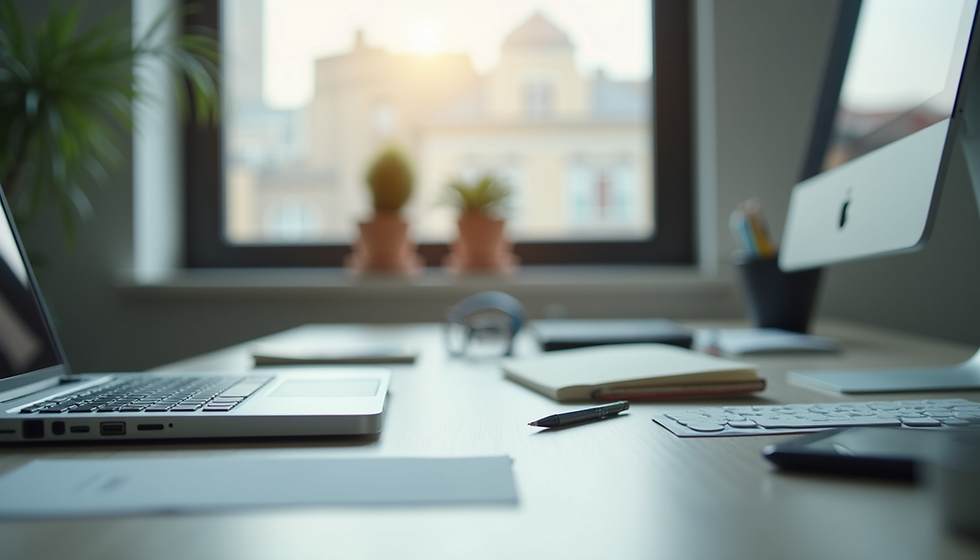The Importance of Office Cleaning Post-Pandemic
- Moonlit Cleaners

- Aug 8, 2025
- 2 min read
Updated: Sep 1, 2025
Health and Safety Comes First
The most noticeable change is the routine disinfection of high-touch areas. Restrooms, lift buttons, and shared kitchen counters are now cleaned more frequently. In some cases, these areas are sanitised multiple times a day. Such locations can be hotspots for germs.
Daily cleaning practices help prevent the transmission of infections, not just COVID-19. They also reduce the spread of the flu and other illnesses. This leads to better productivity and a healthier workplace overall.
Employee Expectations Have Changed
The expectation for hygienic workplaces has become the norm. Employees no longer merely wish for cleanliness; they require it. Cleanliness significantly impacts the overall mental and emotional well-being of employees. Dirty and unhygienic areas can create discomfort and anxiety.
Conversely, a clean office instils peace of mind. Employees trust their employer when they see professional cleaners attending to the premises or notice disinfected surfaces in the office.
New Tools and Cleaning Products
As office cleanliness has become a priority, new cleaning tools are being introduced to address these concerns. Ineffective office cleaning tools are now being complemented with disinfectants that kill 99.9% of germs. Many companies have also switched to colour-coded microfiber cloths to prevent cross-contamination.
Office cleaning products have become more sophisticated, with increased attention to air quality. Post-COVID cleaning strategies now include HEPA filters, air purifiers, and proper HVAC maintenance. Clean air is essential for overall mental wellness, especially in offices lacking proper ventilation.
More Frequent and Noticeable Cleaning
Companies are now visibly cleaning offices during work hours. They hire cleaning staff to provide services within business hours. This practice helps maintain a clean environment and reassures everyone present. Cleaning fosters confidence that surfaces are genuinely clean.
This approach also benefits client-facing companies. A client entering a tidy space and noticing cleaning in progress creates a positive company image.
Cleanliness as a Culture
Facility officers are now taking cleanliness more seriously as part of the company’s image. Cleanliness translates to professionalism. Moreover, prioritising the health of employees and clients offers a significant business advantage. Cleanliness builds trust and positions the company favourably.
The Long-Term Impact of Cleaning Practices
The Shift in Workplace Dynamics
The pandemic has reshaped workplace dynamics. Employees are now more aware of their surroundings and the importance of hygiene. This shift has led to a collective responsibility among staff to maintain cleanliness. Everyone plays a part in fostering a safe environment.
Embracing Technology in Cleaning
Technology is playing a crucial role in modern cleaning practices. Smart cleaning devices, such as robotic vacuums and automated sanitising machines, are becoming common in offices. These innovations enhance efficiency and ensure thorough cleaning.
Training and Awareness
Training staff on proper cleaning protocols is essential. Companies must invest in educating employees about hygiene practices. Awareness campaigns can help reinforce the importance of cleanliness in the workplace.
Conclusion
The desire for a clean space requires the right mindset and suitable practices. The changes brought about by COVID-19 are here to stay. Shared workspaces will continue to rely on professional cleaning services. Disinfecting and improving air quality creates a safe and healthy environment for employees.
Professional cleaning and maintenance services have secured their place in offices and will not be going away anytime soon. Get our professional services now!
---wix---




Comments